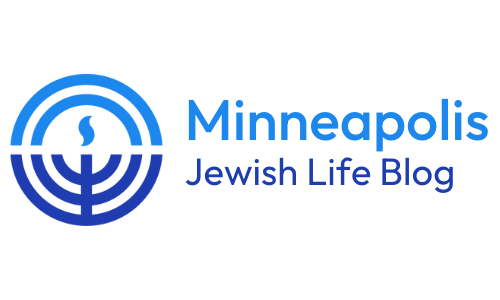How to be a local leader in 2020
Pictured (from left to right): Dudley Deshommes-Kohls, Alexandra Connell, Brittany Willis, Max Orenstein, Shira Lee, Andrew Deshommes-Kohls, Layah Shagalow, Mickayla Rosard, Sam Edelstein, and Ariel Kagan.
2020 has brought plenty of changes and challenges—a pandemic, worldwide protests and calls for justice following the killing of George Floyd, and all the political brouhaha that accompanies an election year all come to mind. But change didn’t stop the YALA Leadership Series from continuing to develop their first cohort of young local Jewish leaders, despite COVID keeping them from meeting in person—and those challenges would become opportunities for applying new leadership skills.
Back in February, the YALA Leadership Series was just kicking off the first cohort with the goal of introducing young Jewish folks to the building blocks of local leadership.
“I just moved back to town and assumed a leadership position in the community,” said Layah Shagalow, Associate Director of local nonprofit Sha’arim, another member of the cohort. “I really just wanted to get to know more people who were interested in being involved in the Jewish community and [the Series] sounded like the sort of place where they would be.”
Dudley Deshommes-Kohls and his husband Andrew were drawn to the YALA Leadership Series after being nominated for the Harry Kay Leadership Institute and realizing that they were looking for something different.
Dudley had previously sat on committees and boards but wondered what it was he had to offer. “I don’t know who I am yet, as far as a leader,” he said of his pre-Leadership Series self. He was looking for something foundational to help him define his own sense of leadership. “Obviously, there’s more to it than just being granted a title.”
While the format of the series had to transition to virtual in early March, the sessions remained largely the same.
“It still worked!” Dudley said of the transition. “We were able to build a nice, small community of our own.”
Plus, being virtual had its own benefits. When Layah had to miss a couple of the sessions, she was able to play the recorded discussions back when she had time again and keep up with the rest of the cohort.
“We still had important conversations,” she said. “That didn’t change.”
Sessions included such topics as “Board Member Bootcamp,” “Exploring the Local Jewish Ecosystem,” and three sessions dedicated to personal leadership exploration. And as current events developed around the murder of George Floyd, the Series and YALA Manager, Emma Dunn, rose smoothly to incorporate those timely, important discussions about justice and inequality.
“I think that a healthy conversation about leadership should always be rooted in the real issues of the world,” said Layah. “Whatever would have come about, the Leadership Series would have been well-equipped to address it, because it was developed to respond to whatever was going on around us. It didn’t even feel like we had to pivot—it felt like this was the moment to be having the conversation.”
“A Healthy conversation about leadership should always be rooted in the real issues of the world.”
—Layah Shagalow, Cohort 1 participant
“It was almost therapeutic,” Dudley said. “It was a good time to be kind and patient and basically heal ourselves. It was good to know that leadership doesn’t involve having to constantly be on all the time. You’re a human being, too.”
The Leadership Series made good on its promise— to provide motivated young people some foundational but essential truths about leadership—and helped remove some of the barriers to participation in leadership opportunities.
“I always had a habit of trying to emulate others,” Dudley said, saying that discovering his personal strengths in the Series made him confident that his own values are exactly what can make him so unique as a local leader.
“Leadership Doesn’t Involve having to constantly be on all the time. You’re a human being, too.”
—Dudley Deshommes-Kohls, Cohort 1 participant
That realization? “That’s something that came from me,” Dudley said. “I didn’t get it from some ‘Leadership 101’ website or because someone said it. I’m able to own that and make it part of me. And with that ownership, [leading] comes out more natural, more authentic.”
“It reminded me that leadership is a personal value and that you take the skills you have wherever you go,” Layah added. “You are a leader, wherever you are, if that’s what you choose to be.”
Already, the first run of the Leadership Series is showing results in the community. Layah’s applying her new knowledge and honed skills at Sha’arim. And Dudley has more recently taken on some new roles in the community, such as speaking about George Floyd on TCJewfolk’s Who the Folk?! podcast, and becoming co-chair of a new anti-racism committee at his synagogue, Adath Jeshurun Congregation.
And for those folks who may be interested in joining a future cohort?
You get out what you put in, says Dudley. “The goal is to be a leader—what does that look like to you? If that’s what you want, this is for you. This is it. This is really going to give you those tools.”
“Do it,” agreed Layah. “It’s always worthwhile to think about the values you hold around leadership.”
The YALA Leadership Series would not be possible without the generous support of the Heilicher Family Foundation, Brittany Willis and Sam Edelstein, the Minneapolis Jewish Federation, and the St. Paul Jewish Federation.
YALA Twin Cities is the young adult platform of the Jewish Federations of Minneapolis and St. Paul.



